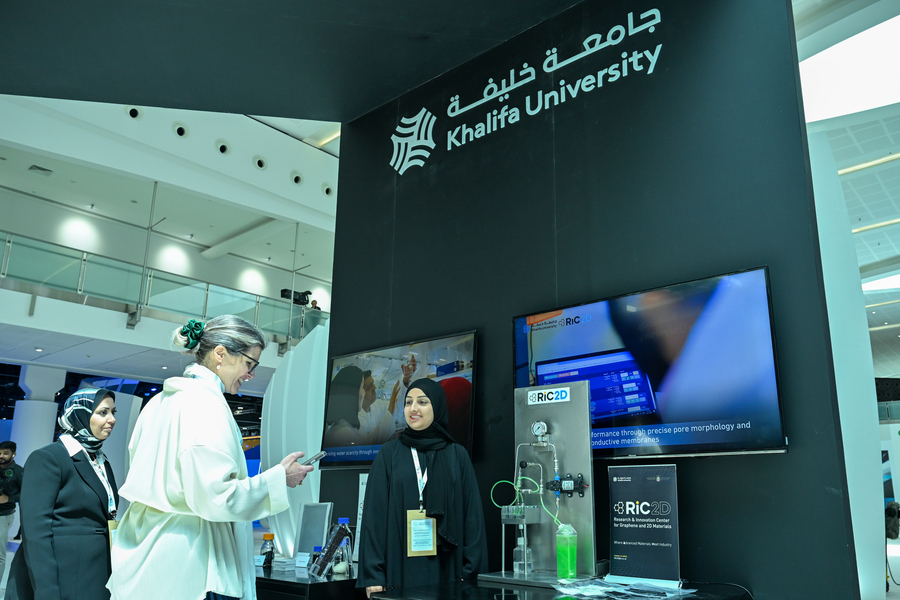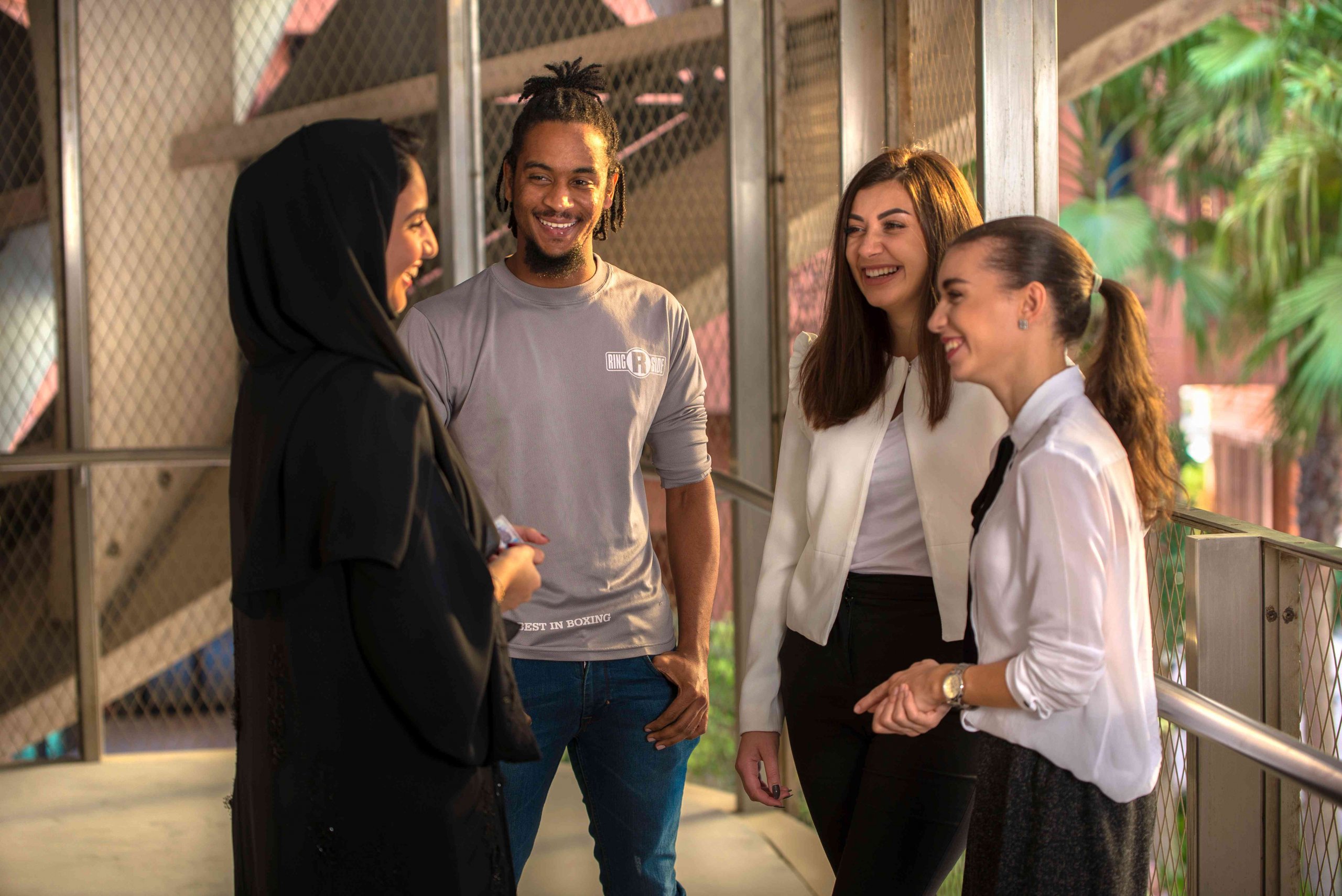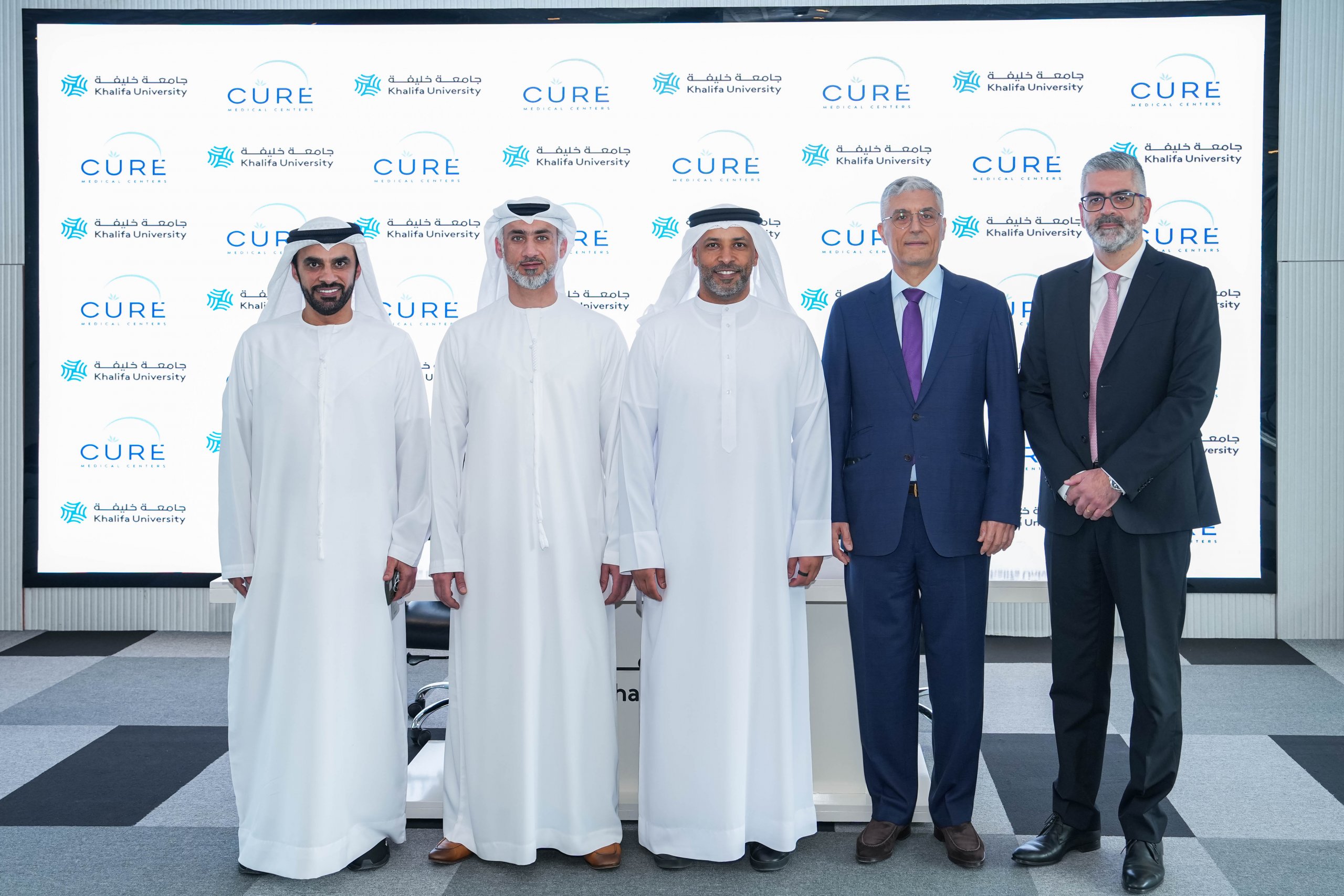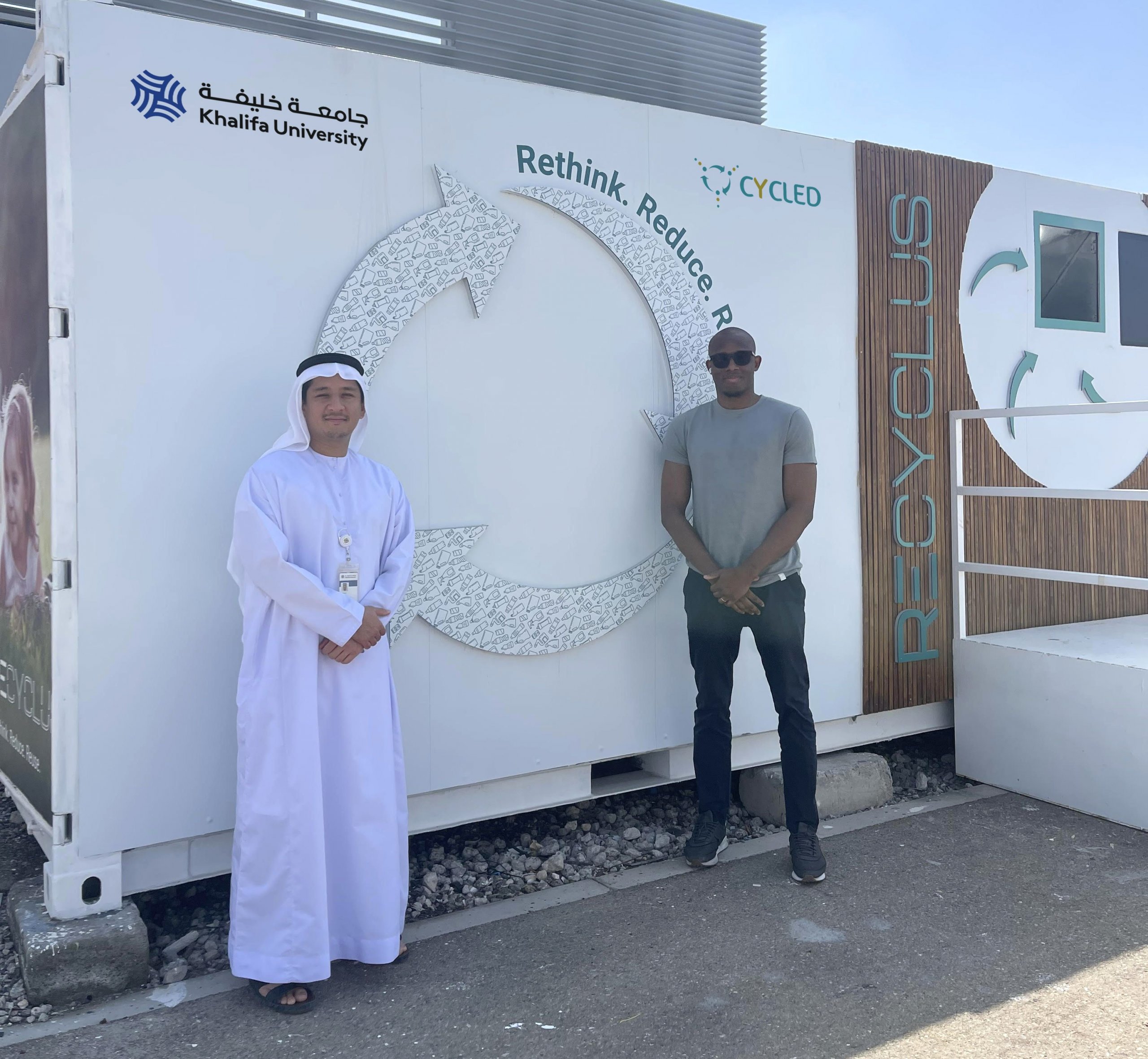Abu Dhabi-UAE: 16 April, 2012 – Masdar Institute of Science and Technology, an independent, research-driven graduate-level university focused on advanced energy and sustainable technologies, today signed agreements with the Directorate of Energy and Climate Change (DECC) within the Ministry of Foreign Affairs (MoFA), Dubai Supreme Council of Energy (DSCE), and Environment Agency – Abu Dhabi (EAD), through the Abu Dhabi Global Environmental Data Initiative (AGEDI), formalizing the funding contributions to the recently announced UAE National Atlas of solar and wind resources.
The announcement was made after a signing ceremony at Masdar Institute that was attended by His Excellency Juma Mubarak Al Junaibi, Undersecretary, UAE Ministry of Foreign Affairs, His Excellency Saeed Mohammed Al Tayer, Vice-Chairman of Dubai’s Supreme Council of Energy, Her Excellency Razan Khalifa Al Mubarak, Secretary-General, Environment Agency – Abu Dhabi, Adnan Amin, Director-General of International Renewable Energy Agency (IRENA), Dr. Sultan Ahmed Al Jaber, Chairman of the Executive Committee of the Board of Trustees of Masdar Institute, CEO of Masdar, and the UAE Special Envoy for Energy and Climate Change, and Dr. Fred Moavenzadeh, President, Masdar Institute.
Nejib Zaafrani, Secretary-General and CEO of DSCE, and Waleed Salman, Chairman of Dubai Carbon Centre of Excellence, were also present at the event.
Aimed at investors, policymakers, and researchers, the atlas will offer universal access to resource quality, grid, and land use data, helping to efficiently assess the feasibility of renewable energy projects for planning and investment decisions.
The UAE participates as a partner in the IRENA Global Atlas initiative, which is a project of international dimension. At the same time, the country is also leading the National Atlas of the UAE, which will contribute to the IRENA Global Atlas.
His Excellency Juma Mubarak Al Junaibi said: “Offering and developing resources that facilitate use of clean energy is one of the UAE’s primary objectives in its economic planning and international relations. The Atlas project also reflects the UAE’s commitment to encourage wider adoption of renewable sources of energy, and we are delighted to be part of this venture that brings together national and international partners. We are confident the collaboration efforts will result in projects that optimize benefits for communities across the world.”
Significantly, Masdar Institute will make available its dust and humidity reconciliation tools, which allow researchers for the first time to account for the aerosols’ impacts on solar quality. Traditional assessments of renewable energy resources in countries like the UAE can be inaccurate by more than 25%, creating high financial risk during project siting.
His Excellency Saeed Al Tayer said: “The agreement reflects our shared commitment to implement the UAE’s vision for a green economy under the slogan ‘A green economy for sustainable development’ as outlined by His Highness Sheikh Mohammed bin Rashid Al Maktoum, Vice-President and Prime Minister of the UAE and Ruler of Dubai. It also shows continued progress in the implementation of the Dubai Integrated Energy Strategy 2030, developed by the Council, which includes the adoption of solar power in order to diversify energy supply and promote sustainable development. We applaud the national atlas initiative of the Masdar Institute and look forward to working closely with all stakeholders in advancing the renewable and clean energy industry in the UAE.”
The Masdar Institute agreements with DSCE and EAD are part of a broader understanding for joint collaboration. DSCE and EAD will directly contribute to the required collection of ground measurement and land use data, as well as data processing and modeling, in order to accurately estimate renewable energy resource quality across the UAE.
Her Excellency Razan Khalifa Al Mubarak said: “As the agency mandated to protect and manage biodiversity, while providing a clean environment and promoting sustainable development in Abu Dhabi, EAD is honored to support a project that directly enables sustainable energy supply. We believe benefits from the atlas project will impact all corners of the globe as the call for clean energy gains further momentum.”
The UAE National Atlas project aligns with the Global Atlas led by the International Renewable Energy Agency (IRENA), the 157-member intergovernmental organization headquartered in Abu Dhabi. IRENA earlier this year signed an agreement on atlas collaboration with Masdar Institute.
Adnan Amin said: “The global renewable energy atlas will be one of the foremost decision-making tools for governments and investors in the coming years. MOFA’s, EAD’s, DSCE’s and Masdar Institute’s contribution, and their commitment to publicly accessible data, are a stellar example of the kind of outlook and collaboration that make the UAE such an exciting locus for the renewable energy industry.”
The atlas data will notably assist in the realization of the UAE’s renewable energy targets, including 7% of generation capacity (or 1,500MW) in Abu Dhabi by 2020, and 5% of energy production (or 1,000MW) in Dubai by 2030.
Dr. Sultan Ahmed Al Jaber said: “The concept of spatial planning to locate and map renewable energy resources is not new. However, while some areas in the world are covered – others have hardly been investigated – especially in developing countries. “This is our opportunity to ensure that this Atlas becomes a comprehensive, shared, global decision- making instrument that informs and benefits governments, companies, academics and tools of communication. This Atlas will eventually become a global decision-making instrument and enable a sustainable future powered by renewable energy. The UAE’s leadership has to be commended for launching this important National Atlas initiative and for contributing to the IRENA Global Atlas.
“The fact that these stakeholders have come together to sign the agreements reflects their strong commitment to share expertise with each other for the sake of the community. At the same time, I urge the partner organizations to capitalize on the knowledge resources available with Masdar and Masdar Institute in capacity building and human capital development to guide the much-needed R&D along the fast-track in the UAE.”
Dr. Fred Moavenzadeh said: “The agreement reflects Masdar Institute’s commitment to knowledge sharing for the benefit of the wider community. As the renewable energy industry gathers momentum, the need for reliable, comprehensive data on primary renewable energy resources will only become increasingly important. We are delighted to enter into this arrangement with DSCE and EAD to provide a world-class tool for both domestic and international audiences.”
The UAE Atlas is led by the Research Center for Renewable Energy Mapping and Assessment at Masdar Institute. Data will be made freely available in early 2013 through IRENA.






